3 Tips to safely manage your RV power sources
It makes no difference if you’re set up in your RV at a campground or “boondocking” in a camper off the grid, your vacation is enriched with a constant and reliable source of electricity. But remember that any power source could be dangerous to people and electrical appliances when not managed effectively.
By simply following these three basic safety and maintenance tips you’ll keep yourself and your RV furnishings secure.
-
Understand Your Power Sources
Recreational vehicles (RVs) and campers are built to be plugged into the grid or run off auxiliary power from a 12-volt battery or an external generator.
If your RV can be plugged into the campground AC grid, it usually comes with a heavy-duty cord rated for 30 amps and 120 volts. If the campground provides 30 amp outlets, you’re ready to go.
In several small campgrounds, you could be connected to a lower household plug offering 15 or 20 amps. You can use an adapter to draw on this power source, but the likelihood of power surges and poor electricity might damage the compressors in your air conditioner and refrigerator.
Use few appliances and devices when connected to the lower amperage to avoid over tasking the power source and damaging your appliances.
Even when you’re plugged into the grid, your camper is made to convert some of the AC power to 12-volt DC power to run these devices. The battery is charged up again when you’re plugged into AC power, solar power panels, or when the RV engine is running.
The third source of power possible in an RV is the onboard or auxiliary generator. The onboard or exterior generator gives you enough power to run your 120-volt appliances and furnishings. This can recharge your RV battery to use your DC devices. Generators offer you more options when off-grid.
-
Maintain Your Battery and Generator
The most damaging thing you can do to a generator is fill it with fuel, make use of it once or twice, and then just allow it sit. The fuel left in the carburetor forms a lacquer that fouls the fuel jets at least and makes the generator fail to start. Run your generator for 30 minutes weekly to always keep fresh fuel circulating.
If you won’t run the generator for some time, start it and run it for five or ten minutes. Then, cut off the fuel supply while the generator is still running. Allow the engine die on it own. Now, you can store the generator long-term without having to worry about fuel damage.
Your 12-volt RV battery additionally needs upkeep. At all times remove the battery from the RV before working on it. Keep any open flames or smoking materials far away from the battery also Check the electrolyte levels in the battery and fill it up with clean distilled water if need be. If you have a “no-maintenance” battery, you can’t actually check it, but you can do the following to all batteries:
Always keep connections thoroughly clean
Hand tighten terminal connections
Spray connections with terminal protector
Campers often drain 12-volt batteries accidentally by leaving a light or a radio on all through the day when no one is inside the RV. Find out if your battery has a shut-off switch. Turn the battery power off when you’re out of the camper, and you won’t lose power. If your battery doesn’t have this switch, your RV supplier could order one for you.
-
Protect Yourself from Surge Suppression and CO2 Poisoning
Electrical surges contribute to a number of problems in your RV, and some of them might pose a shock hazard to you and other people in or around the camper. Make use of a top quality surge suppressor to keep your electrical system protected from high- and low-voltage conditions. Surge suppression as well protects your RV from damage on account of inappropriately managed electrical service.
Carbon monoxide poisoning is an extremely real danger when using generators close to people’s living quarters. It is a hazardous gas that is generated by burning fuel. If it accumulates indoors, it could kill people and pets.
Never put generators indoors or anywhere close to your RV windows. Check out the airflow around your generator to be sure fumes don’t enter. Buy CO and smoke detectors to alert you to dangerous interior air conditions.

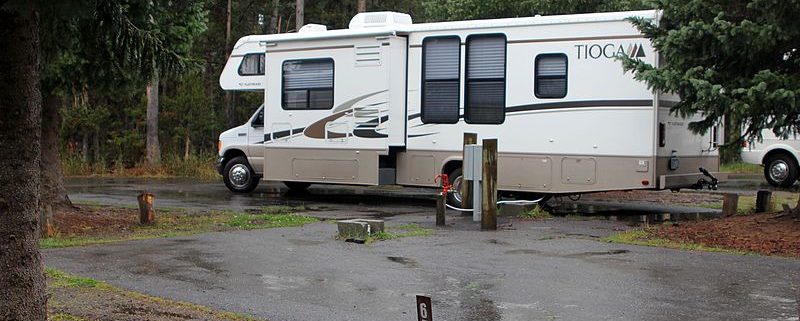
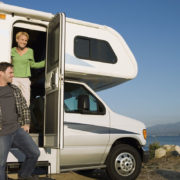
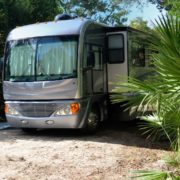
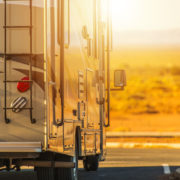

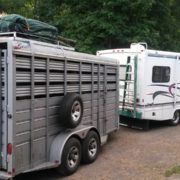
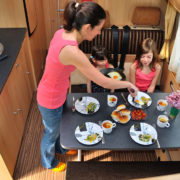


Leave a Reply
Want to join the discussion?Feel free to contribute!